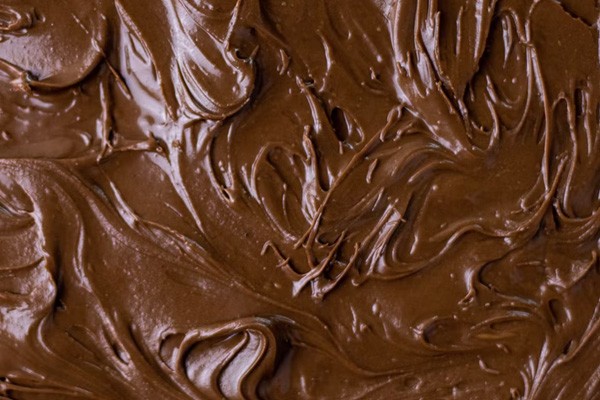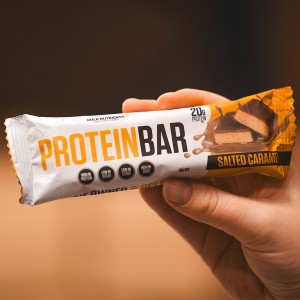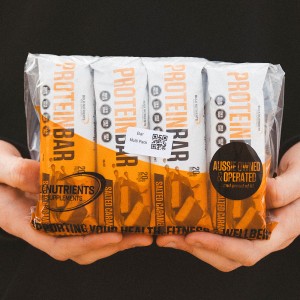Are Protein Bars Much Better Than Normal Chocolate Bars?

Protein bars vs chocolate bars
On a recent trip to the supermarket, I decided to do some nutritional Sherlock Holmes'ing.
One protein bar I came across had 20 grams of protein, 32 grams of carbs, and 11 grams of fat, for 324 calories.
That’s pretty calorie-dense for a “healthy” snack.
But here's where things get a little interesting...
A popular chocolate bar contains just 230 calories.
Now yes, the chocolate bar doesn't have protein.
But depending on where you are when you want the high protein snack, I have a better alternative: if you're out on a building site for example, working on top of the scaffolding, then a protein bar is great because you pull it out of your pocket, eat it, and you're done.
But if you have an office job, and have time to make a protein shake too, then do that -- and eat the chocolate bar!
That way, you're likely getting MORE protein (depending on the protein bar you chose) from the shake, plus the sweet goodness of the chocolate bar, for basically the same amount of calories.
And obviously, you can't start mixing a protein shake easily on top of a building site. So it comes down to your lifestyle and how easily you can consume this protein snack when you want it.
And keep in mind, the extra calories from protein hardly do anything to harm your waistline, anyway.
I've spoken a few times about this study that overfed resistance-trained gym-goers 800 calories from whey and casein protein for 8 weeks.
And guess how much fat they gained?
None.
What? Why was this?
A few factors, but mainly, the thermogenic effect of protein.
The thermogenic effect of protein is 30 per cent, which means you lose 30% of the calories consumed from protein by simply digesting it. That's how much it costs your body (in calories) to ensure it's used.
So whey and casein protein is great to consume on a weight loss diet, and not going to wreak havoc on your waistline.
Now another important thing to point out -- fibre content.
Some chocolate bars, like Hershey's for example, have 7 grams of fibre, whilst some protein bars have 1-2 grams. Then, of course, other protein bars have 13 grams of fibre.
So keep this in mind when you're choosing your option.
But remember, your daily fibre intake should be roughly 14 g/1000 kcal consumed. Now, a protein bar or shake snack might not be where you plan on getting the bulk of your fibre from, but if you ensure you're hitting fibre numbers throughout the day, then this is of little consequence.

The other thing to remember with protein bars is their cheeky marketing tactics.
A "low carb" bar isn't always as low as you think.
Now in case you haven't caught up with this truth: low-carb diets aren't any better for fat loss and carbs don't make you fat.
Ok, now back to business: understand that these ingredients in protein bars are all types of carbohydrates, but have about 50% of the calorie value.
- Sorbitol
- Maltitol
- Glycerol
Even though they have half the caloric value as carbohydrates, just keep these calories in mind. For an in-depth look at these sugar alcohol ingredients in protein bars.
Now we're not talking about a big difference here, but it's just something to be aware of.
Have you seen our Bulk Nutrients recipes? Make your own high-protein nut bar , Oreo Bulking Bar , gooey vegan bars , Raw or Vanilla Maple Granola Bars or Snack Sized Pecan Protein Bars for when you need a quick energy boost.
A Protein Bar that's like a chocolate bar? Say less!
After tasting a whole range of protein bars available on the Australian market - here at Bulk Nutrients we decided to make our own!
Our delicious Protein Bars come in two flavours - Salted Caramel and Choc Fudge, and contain 20g of protein per 60g bar.
We worked hard to create the perfect blend of Whey Protein Concentrate, Milk Protein Concentrate and Collagen so the texture is unmatched - think a chewy, fudgey chocolate bar that's good for you and tastes great. Anecdotal reviews have suggested these taste like dessert and make a great alternative.
It was important to us to stick to our values and make sure the bar tasted great and was naturally flavoured and sweetened - and it is! It's a sweet treat that's perfect to grab and eat while you're on the go, without sacrificing your macros - it's low in carbs and sugars, less than 230 calories per bar, and has less than 8g of fat.
Learn more about our Protein Bars here.

The bottom line on protein bars
Is that protein bars are great, but there's no perfect alternative to a chocolate bar if that's what you're craving! If a protein bar just won't hit the spot (firstly, try our Protein Bars!) try a chocolate bar but pair it with a protein shake to make it more filling.
You can still consume either or whenever you like, just don't get bogged down in the fallacy that "protein bars are good, chocolate bars are bad."
Because there's plenty of nutritional science to challenge that stereotype. Focus on a balanced and flexible diet for great weight loss success.
References:
- Antonio, J., Peacock, C.A., Ellerbroek, A. et al. The effects of consuming a high protein diet (4.4 g/kg/d) on body composition in resistance-trained individuals. J Int Soc Sports Nutr 11, 19 (2014). https://doi.org/10.1186/1550-2783-11-19
- Anderson JW, Baird P, Davis RH Jr, Ferreri S, Knudtson M, Koraym A, Waters V, Williams CL. Health benefits of dietary fiber. Nutr Rev. 2009 Apr;67(4):188-205. doi: 10.1111/j.1753-4887.2009.00189.x. PMID: 19335713.
- van Baak MA. Meal-induced activation of the sympathetic nervous system and its cardiovascular and thermogenic effects in man. PhysiolBehav. 2008 May 23;94(2):178-86. doi: 10.1016/j.physbeh.2007.12.020. Epub 2008 Jan 2. PMID: 18281067.
- Sacks FM, Bray GA, Carey VJ, Smith SR, Ryan DH, Anton SD, McManus K, Champagne CM, Bishop LM, Laranjo N, Leboff MS, Rood JC, de Jonge L, Greenway FL, Loria CM, Obarzanek E, Williamson DA. Comparison of weight-loss diets with different compositions of fat, protein, and carbohydrates. N Engl J Med. 2009 Feb 26;360(9):859-73. doi: 10.1056/NEJMoa0804748. PMID: 19246357; PMCID: PMC2763382.
- Fluhr JW, Darlenski R, Surber C. Glycerol and the skin: holistic approach to its origin and functions. Br J Dermatol. 2008 Jul;159(1):23-34. doi: 10.1111/j.1365-2133.2008.08643.x.Epub 2008 Jul 1. PMID: 18510666.
Related Blogs

Are Chocolate and Wine Actually Good for My Heart?
Posted by Bulk Nutrients
Estimated reading time: 5 minutes

The Bar Has Been Raised - Big Time!
Posted by Bulk Nutrients
Estimated reading time: 5 minutes















































